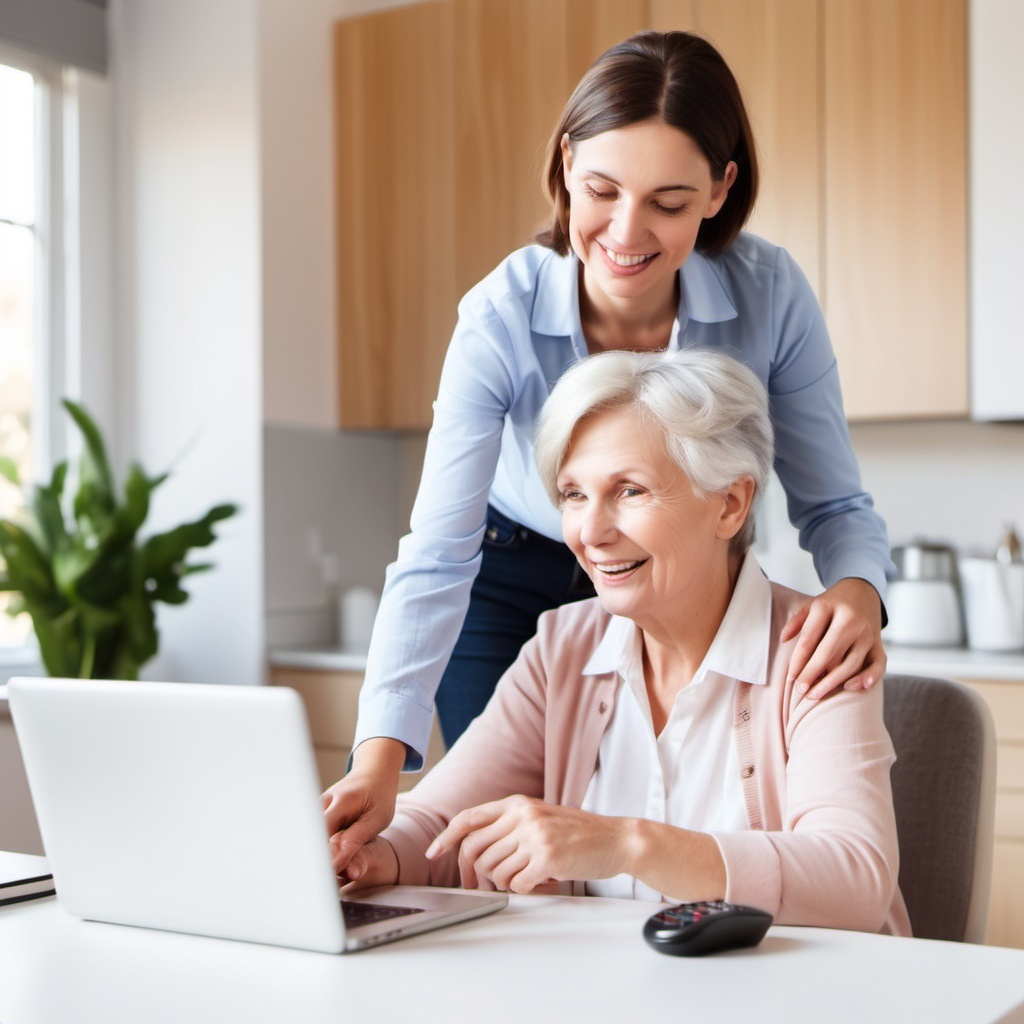Caring for a loved one from a distance presents unique challenges, including coordinating care, ensuring safety, and addressing emotional needs. Remote caregiver support bridges the gap, offering tools and services that empower families to provide effective care for elderly or disabled individuals without being physically present.
Advances in technology and professional caregiving services have made it easier for remote caregivers to stay connected and ensure their loved ones receive the attention and support they need.
What Is Remote Caregiver Support?
Remote caregiver support refers to a range of resources, tools, and services designed to help family members provide care for loved ones while living in a different location. This support may include digital tools, professional caregiving services, and community programs that facilitate long-distance caregiving.
The goal is to ensure that individuals receiving care remain safe, comfortable, and well-supported, even when their primary caregiver cannot be with them in person.
Challenges Faced by Remote Caregivers
Remote caregiving can be both rewarding and challenging. Common difficulties include:
- Communication Gaps: Coordinating care with healthcare providers, family members, and the individual receiving care can be complicated from a distance.
- Monitoring Health and Safety: Ensuring that medical conditions are managed properly and that the home environment is safe.
- Emotional Strain: Feelings of guilt, stress, or helplessness due to being unable to provide hands-on care.
- Financial and Time Constraints: Balancing caregiving responsibilities with work, travel, and other commitments.
Essential Tools for Remote Caregiver Support
Technology plays a pivotal role in supporting remote caregivers. Key tools include:
1. Telehealth Services
- Enable caregivers to attend virtual appointments with doctors and specialists.
- Provide real-time updates on medical conditions and treatment plans.
2. Remote Monitoring Systems
- Devices like motion sensors, cameras, or wearable health trackers ensure that caregivers are aware of daily activities and emergencies.
- Alerts for falls, unusual behavior, or changes in vital signs help caregivers act promptly.
3. Medication Management Tools
- Smart pill dispensers that notify caregivers if medications are missed.
- Apps that track prescriptions and send reminders.
4. Communication Platforms
- Video calling apps to stay connected emotionally and check in regularly.
- Group chat tools for coordinating care among multiple family members.
5. Professional Home Care Services
- Engaging local caregivers to provide in-home assistance for tasks like meal preparation, housekeeping, or medical care.
Strategies for Effective Remote Caregiving
To provide effective remote caregiving, families should adopt a proactive and organized approach:
1. Develop a Care Plan
- Outline the individual’s needs, including medical, emotional, and daily living requirements.
- Collaborate with healthcare providers and local caregivers to create a comprehensive plan.
2. Build a Support Network
- Identify friends, neighbors, or community resources that can assist when needed.
- Stay in regular contact with local caregivers to monitor progress and address concerns.
3. Stay Informed About Health Conditions
- Educate yourself on your loved one’s medical conditions and treatment plans.
- Regularly review medical updates and adjust care strategies accordingly.
4. Schedule Regular Check-Ins
- Establish a routine for phone or video calls to provide emotional support and monitor well-being.
- Use these check-ins to discuss any changes in health or daily routines.
5. Leverage Professional Services
- Hire home care agencies to handle tasks like personal care, housekeeping, or companionship.
- Utilize respite care services to ensure continuous support during emergencies or caregiver breaks.
Benefits of Remote Caregiver Support
Remote caregiver support offers significant advantages, including:
- Peace of Mind: Knowing that your loved one is being cared for properly, even from afar.
- Flexibility: Tools and services allow caregivers to balance responsibilities while maintaining their own routines.
- Improved Safety: Real-time alerts and monitoring systems reduce the risk of accidents or medical emergencies.
- Enhanced Quality of Life: Frequent communication and professional support improve emotional and physical well-being for both caregivers and care recipients.
Professional Support for Remote Caregivers
Caregiving agencies and healthcare providers can offer specialized services to make remote caregiving easier:
- In-Home Care Services: Trained professionals provide daily assistance and companionship.
- Geriatric Care Management: Care managers coordinate medical appointments, medications, and home safety assessments.
- Transportation Services: Assisting with travel for medical visits, errands, or social outings.
Tips for Long-Distance Caregivers
To maximize the effectiveness of remote caregiving:
- Visit Regularly: Schedule periodic visits to spend quality time and assess living conditions firsthand.
- Stay Organized: Maintain a caregiving notebook or app to track schedules, medications, and key contacts.
- Communicate Openly: Keep an open dialogue with your loved one, other family members, and professional caregivers.
- Practice Self-Care: Manage stress and seek support groups to avoid caregiver burnout.
Remote caregiver support ensures that families can care for their loved ones effectively, even from a distance. By leveraging technology, professional services, and thoughtful planning, caregivers can provide safety, comfort, and emotional connection, making a meaningful difference in the lives of those they care for.
Written By Ikemenogo Chinasa Bridget
